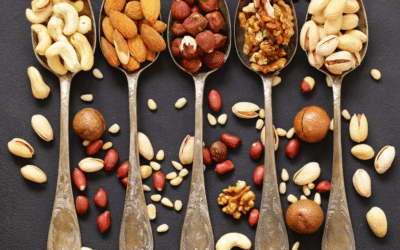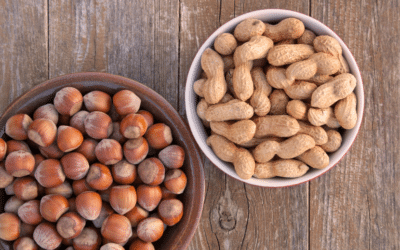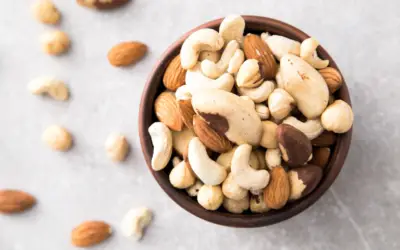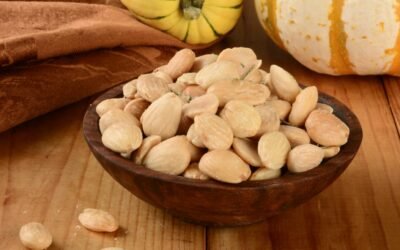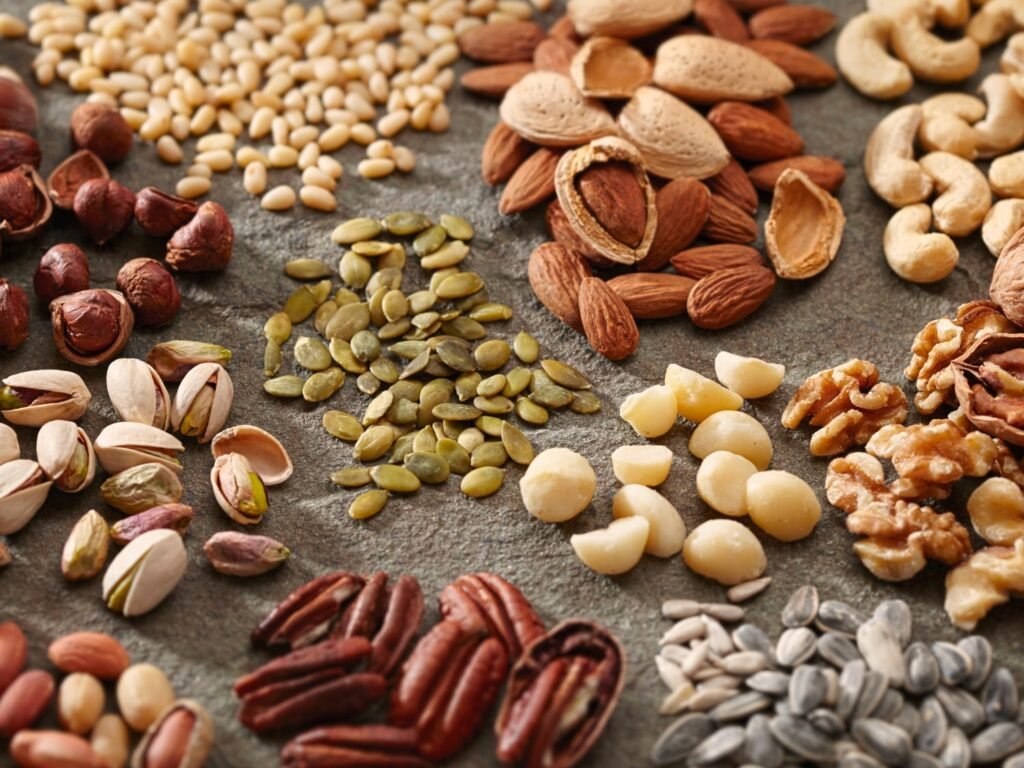
Nuts are among the most nutrient-dense foods on the planet. Packed with healthy fats, protein, fiber, vitamins, and minerals, they are a convenient and versatile snack. But many nuts are also high in calories, which makes them a powerful source of energy—ideal for those looking to gain weight, fuel intense physical activity, or simply enjoy a satisfying and healthy snack. This article delves into which nuts are the highest in calories, why they’re so energy-dense, and how to consume them wisely.
Why Are Nuts So High in Calories?
Nuts are high in calories mainly due to their fat content—mostly healthy unsaturated fats, including monounsaturated and polyunsaturated fats. Fat provides 9 calories per gram, compared to 4 calories per gram for protein or carbohydrates. Alongside fats, nuts also contain some carbohydrates and plant-based proteins, contributing to their total caloric value.
Additionally, nuts are dense in micronutrients like vitamin E, magnesium, potassium, and antioxidants, making them a compact nutritional powerhouse.
When Are High-Calorie Nuts Especially Useful?
High-calorie nuts can be particularly beneficial for certain individuals or situations:
- Athletes and bodybuilders who need calorie-dense, nutrient-rich foods.
- People trying to gain weight in a healthy manner.
- Hikers or campers who need portable, long-lasting energy sources.
- Busy professionals or students looking for convenient, sustaining snacks.
- Vegans and vegetarians needing plant-based protein and fats.
Top High-Calorie Nuts (Per 100g)
Below is a table of some of the most calorie-dense nuts, ranked by their approximate calorie content per 100 grams:
| Nut | Calories (per 100g) | Fat (g) | Protein (g) | Carbs (g) |
|---|---|---|---|---|
| Macadamia nuts | 718 kcal | 76 | 8 | 14 |
| Pecans | 691 kcal | 72 | 9 | 14 |
| Pine nuts | 673 kcal | 68 | 14 | 13 |
| Brazil nuts | 659 kcal | 67 | 14 | 12 |
| Walnuts | 654 kcal | 65 | 15 | 14 |
| Hazelnuts | 628 kcal | 61 | 15 | 17 |
| Almonds | 579 kcal | 50 | 21 | 22 |
| Pistachios | 562 kcal | 45 | 20 | 28 |
| Cashews | 553 kcal | 44 | 18 | 30 |
| Peanuts (technically legumes) | 567 kcal | 49 | 26 | 16 |
How to Include High-Calorie Nuts in Your Diet
Here are some simple and tasty ways to incorporate high-calorie nuts into your meals:
Snacking
- A small handful (around 28g) of macadamia, pecan, or Brazil nuts makes a great mid-day energy booster.
- Trail mix combining nuts, seeds, and dried fruits.
Breakfast
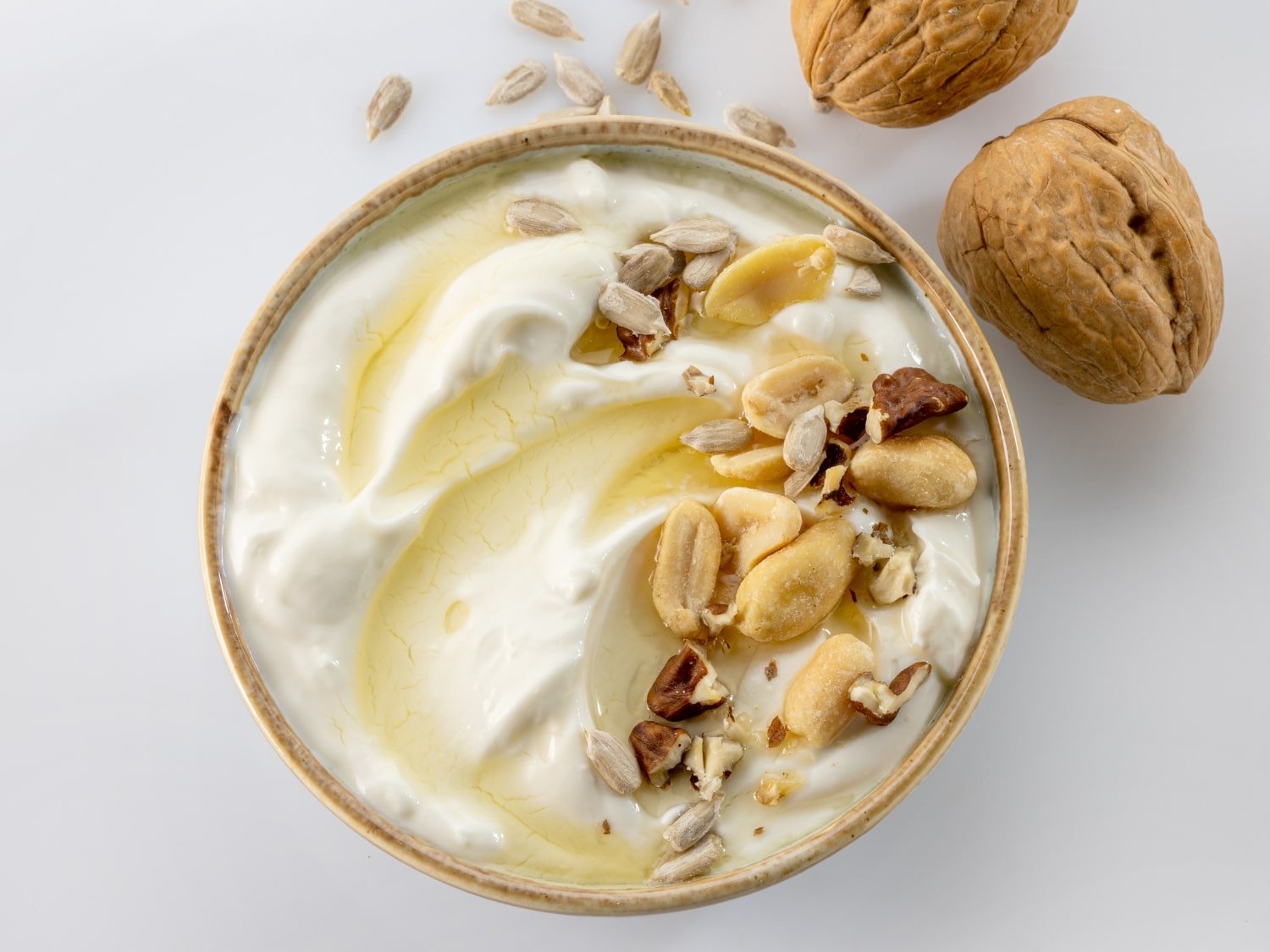
- Stir chopped nuts into oatmeal, granola, or yogurt.
- Blend almond butter or peanut butter into smoothies for a creamy, high-calorie boost.
Salads and Meals
- Top salads with toasted walnuts or pine nuts for crunch and nutrition.
- Use cashew cream as a dairy-free sauce base.
Baking and Desserts
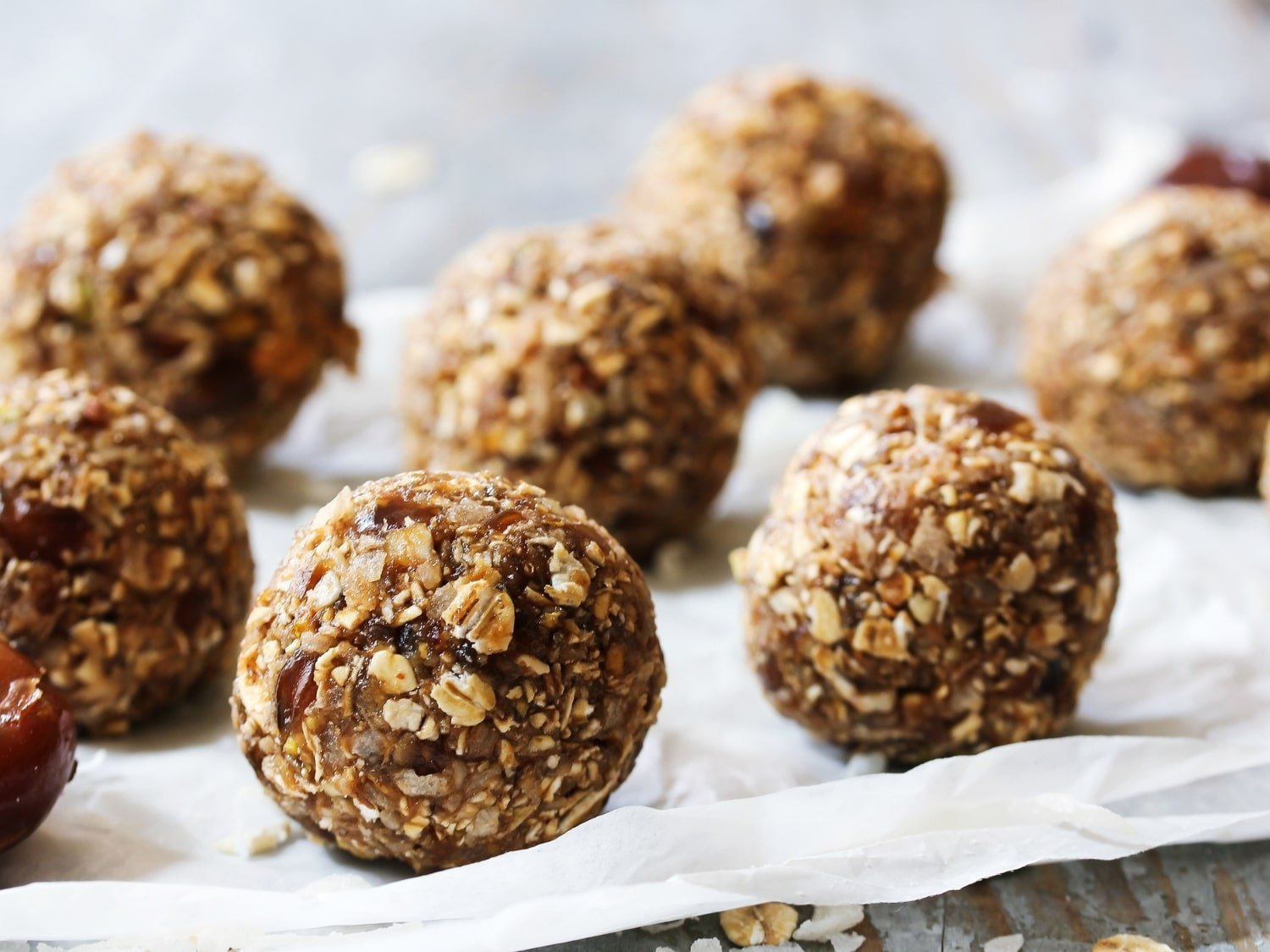
- Add crushed nuts to cookies, brownies, or banana bread.
- Make nut-based energy balls with dates, cocoa, and coconut.
Health Benefits of High-Calorie Nuts
Despite being dense in calories, high-calorie nuts offer a wealth of health benefits that make them a smart and nourishing choice when consumed in moderation. Rich in healthy fats, protein, fiber, and a wide array of micronutrients, these nuts support overall wellness in multiple ways.
1. Heart Health
High-calorie nuts like almonds, walnuts, and macadamia nuts are champions for cardiovascular health. They are packed with monounsaturated fats, which help reduce levels of LDL (bad) cholesterol while maintaining or even increasing HDL (good) cholesterol. Walnuts also offer plant-based omega-3 fatty acids—specifically alpha-linolenic acid (ALA)—which have anti-inflammatory properties that further support heart function and help reduce the risk of atherosclerosis and other heart conditions. Regular nut consumption has been linked to a significantly lower risk of coronary heart disease, as documented by large-scale studies such as the Nurses’ Health Study and PREDIMED trial.
2. Weight Management
Although high in calories, nuts can actually be beneficial for maintaining or even losing weight—if eaten in the right portion sizes. This is largely due to their high content of fiber, protein, and healthy fats, which work together to promote feelings of fullness and reduce overall calorie intake. The fat in nuts also takes longer to digest, slowing gastric emptying and keeping you satisfied for longer. Additionally, some of the fat in nuts is not fully absorbed by the body due to their fibrous structure, meaning the actual calorie intake may be less than estimated. Research consistently shows that individuals who regularly eat nuts tend to have a lower body mass index (BMI) and are less likely to gain weight over time.
3. Energy Boost
Thanks to their dense calorie and fat content, high-calorie nuts are an excellent natural energy source. This makes them ideal for athletes, outdoor enthusiasts, and anyone with high physical demands or a fast metabolism. Unlike simple carbohydrates that lead to quick energy spikes and crashes, the healthy fats and protein in nuts provide sustained energy release over time. For people engaging in long-distance sports like hiking, cycling, or running, a handful of nuts can offer long-lasting fuel without the need for processed energy bars or sugary snacks.
4. Brain Function
Nuts, especially walnuts, are often referred to as “brain food” for good reason. They contain a rich profile of neuroprotective compounds, including omega-3 fatty acids, vitamin E, polyphenols, and antioxidants. These nutrients help reduce oxidative stress and inflammation in the brain, two key contributors to cognitive decline and neurodegenerative diseases like Alzheimer’s. Several studies have shown that regular nut consumption is associated with better cognitive performance, improved memory, and slower rates of age-related mental decline. In particular, vitamin E and polyphenols play a role in maintaining the integrity of neurons and improving synaptic plasticity.
5. Antioxidant Support
High-calorie nuts are a powerful source of antioxidants, which help the body combat oxidative stress—a condition that occurs when there is an imbalance between free radicals and antioxidants. Nuts like Brazil nuts, almonds, and hazelnuts are particularly rich in vitamin E, an essential fat-soluble antioxidant that protects cell membranes from damage. Brazil nuts are also the richest known dietary source of selenium, a mineral with potent antioxidant properties that supports immune function, thyroid health, and DNA repair. These compounds may help lower inflammation, slow aging, and reduce the risk of chronic diseases such as cancer, heart disease, and type 2 diabetes.
Portion Control Tips
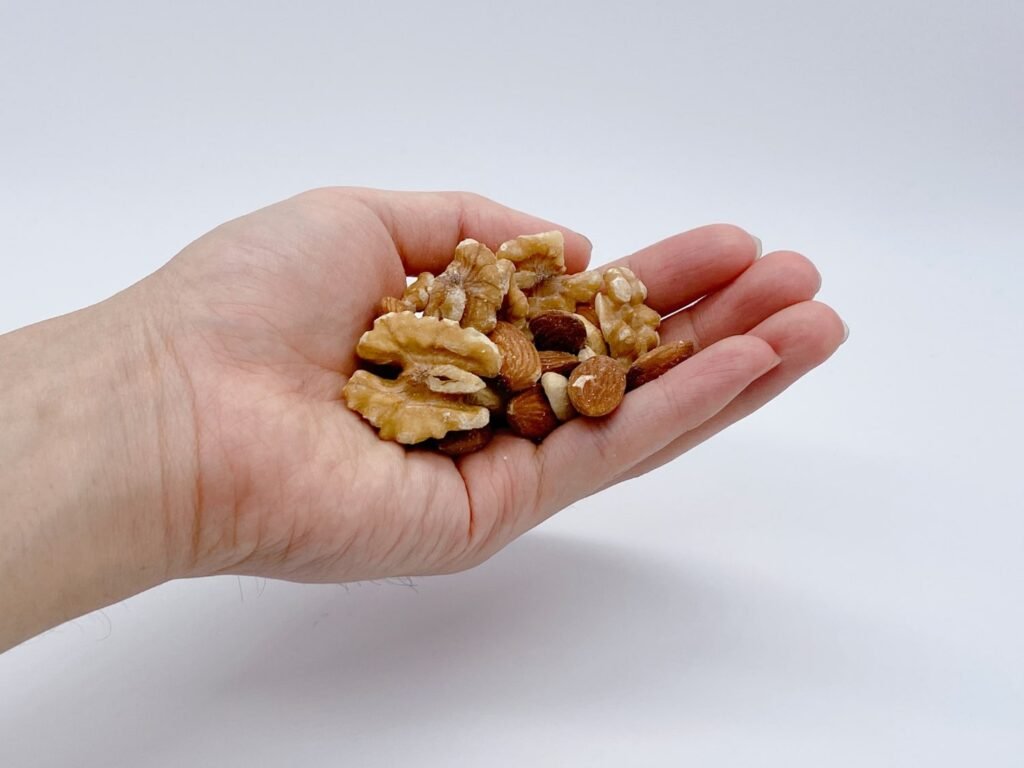
Even though nuts are healthy, portion control is key due to their calorie density. A standard serving size is:
28 grams (1 ounce) which is roughly:
- 23 almonds
- 18 cashews
- 20 pecan halves
- 14 walnut halves
- 10–12 macadamias
Using small containers or measuring out portions in advance can help prevent overconsumption.
Potential Downsides to Watch For
While high-calorie nuts are nutritious, there are a few things to be mindful of:
- Allergies: Common with peanuts, walnuts, and cashews.
- Added oils/salt: Choose raw or dry-roasted nuts without added oils, sugars, or excess salt.
- High selenium: Brazil nuts are rich in selenium, and eating too many can lead to toxicity. Limit to 1–2 nuts per day.
Nuts and Calories FAQ
Which nut is the highest in calories?
Macadamia nuts are the highest in calories among commonly consumed nuts, providing approximately 718 calories per 100 grams. Their extremely high fat content—about 76 grams of mostly monounsaturated fats—makes them exceptionally energy-dense. Despite their calorie load, macadamias are also rich in antioxidants, fiber, and heart-healthy fats.
Are nuts good or bad calories?
Nuts contain good calories because they come from nutrient-dense sources like unsaturated fats, plant-based protein, fiber, vitamins, and minerals. Unlike empty-calorie foods that provide energy without nutrition, the calories in nuts support heart health, brain function, and satiety, making them beneficial even for those watching their weight—when consumed in moderation.
Why are nuts so high in calories for weight loss?
Nuts are high in calories because of their rich fat content, but the fats are mostly unsaturated and support overall health. When it comes to weight loss, the high fiber and protein levels in nuts help you feel full longer, potentially reducing the urge to snack on less healthy options. The key is portion control—nuts can fit into a weight-loss plan if not overconsumed.
Can eating too many nuts be fattening?
Yes, eating too many nuts can be fattening because of their calorie density. A few handfuls can quickly add up to several hundred calories, which may lead to weight gain if they significantly exceed your daily energy needs. While healthy, nuts should be consumed in mindful amounts—typically 28–30 grams per day—to avoid excess calorie intake.
Should I avoid nuts to lose weight?
You do not need to avoid nuts to lose weight, they can be a helpful part of a weight-loss diet. Their protein, fiber, and healthy fats help control hunger and promote fullness. The key is to stick to reasonable portion sizes (about a small handful per day) and avoid overly processed or sugar-coated nut varieties.
What is the unhealthiest nut to eat?
No nut is inherently unhealthy, but candied or heavily salted nuts can be problematic due to added sugars, sodium, and oils. In their natural state, most nuts are healthy, but some people may need to limit Brazil nuts due to their extremely high selenium content, which can be toxic in large amounts. Moderation and preparation method are key factors.
Which nut is lowest in calories?
Cashews and pistachios are among the lowest in calories per gram, with cashews providing around 553 kcal per 100 grams and pistachios about 562 kcal. However, when looking at calories per serving, pistachios often come out ahead since they have more nuts per ounce, making them a great option for those wanting a lighter snack with satisfying crunch and flavor.
Is 100g of nuts a day too much?
Yes, 100 grams of nuts a day is likely too much for most people unless you’re an athlete or need high energy intake. That amount typically ranges from 550 to 700+ calories, which can easily tip your daily calorie balance into surplus and lead to weight gain over time. A more suitable daily serving is around 28–30 grams (1 ounce).
Final Thoughts
Nuts high in calories are not just a source of energy—they are loaded with beneficial fats, protein, fiber, and essential nutrients. Whether you’re aiming to bulk up, fuel your workouts, or just snack smarter, these nuts can be a delicious and healthful addition to your diet. Just remember that moderation matters. A small amount goes a long way, both in nutrition and energy.

